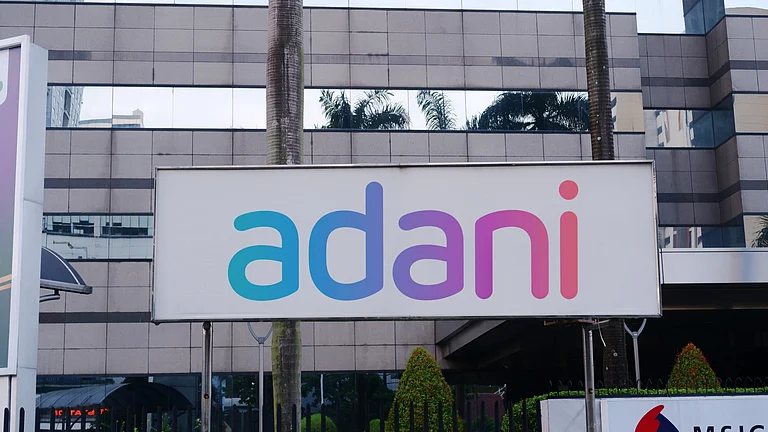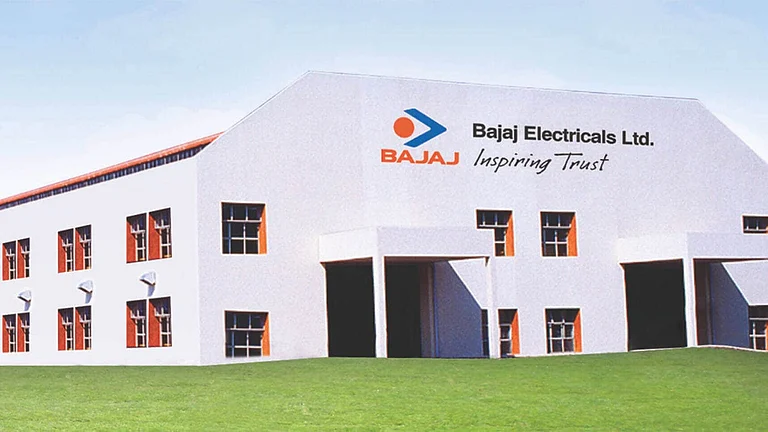You can now own premium property at a location where your next-door neighbour could be American rapper Snoop Dogg. Not just any location—a location that has been carefully designed by the iconic musician himself. The catch? The piece of land exists only in the digital confines of the metaverse. In this case, the Snoopverse.
This property, just like any other physical property you own, comes at a cost—a very real and exorbitant cost—and with tough competition. Last year, someone paid $450,000 to be Snoop Dogg’s neighbour in the Snoopverse. Built in a virtual world called The Sandbox last year, Snoopverse gives fans an exclusive peek into Dogg’s life, has a virtual replica of his real mansion and is a spot for virtual concerts, events and more.
Back home, popular Punjabi singer Daler Mehndi recently bought a piece of land on the metaverse—Balle Balle Land—where he plans to host concerts and connect with his fans. Interestingly, on Republic Day this year, Mehndi also became India's first artist to host a concert on the PartyNite metaverse platform.
Many celebrities and brands are beginning to dabble in the metaverse, an immersive virtual space that mimics the real, physical world using augmented reality, virtual reality and blockchain. It is a digital space where people get to use their avatars—their online representations—to virtually meet, attend meetings and concerts, collect exclusive NFTs and so on.
While crypto enthusiasts already had their eyes set on the metaverse, even leading corporations and investors are now gravitating towards this new digital world. The massive business opportunity that it entails is being seen as the biggest magnet. The metaverse is pegged to become an $800-billion market by 2024 with tech giants like Meta, Microsoft, Apple and Google investing big money in making it a reality, says a Bloomberg estimate.
Thousands of people and many corporations have already spent millions of real dollars on virtual pieces of land in digital worlds like Decentraland and The Sandbox. The metaverse has seen several big-ticket entrants in the form of leading brands like Adidas, Samsung, JP Morgan, HSBC, among others, with many others considering to jump on the bandwagon.
Pooja Entertainment, a production house founded by film producer Vashu Bhagnani, recently announced that it had acquired virtual land in the metaverse—becoming the first Indian production house to do so. Titled ‘Poojaverse’, it will be a virtual spot that would be used to create first-of-its-kind immersive experiences for viewers.
“We intend to make Poojaverse the absolute go-to space for quality entertainment and various aspects of filmmaking in the digital world,” says producer Deepshikha Deshmukh who is also the non-executive director of Pooja Entertainment.
Deshmukh says that when it comes to entertainment, this is going to be the new way people consume content. "The metaverse is the new iteration of the social media world and it is the new frontier of the internet. In the future, a large section of youth will find it immersive for entertainment, attending concerts, and more. So, we want to be there to let people experience entertainment in a new way," she says, adding that a lot of planning is going on as they are exploring the space.
Viacom18’s kids’ entertainment franchise Nickelodeon hosted its Kids’ Choice Awards in the Decentraland metaverse. Sonali Bhattacharya, head of marketing, Kids TV Network, Viacom18, says companies are betting big on virtual land in the metaverse as it gives them new opportunities to seek deeper engagement levels with their consumers.
"Global interest in the metaverse has quickly risen to prominence and will grow further. The lines between the virtual and physical world are blurring. Metaverse is here to stay and will continue to evolve," she says, adding that currently it blends seamlessly with gaming, education and entertainment. There is a lot to expect in this space and (what is happening) right now it is just a drop in the ocean, says Bhattacharya.
What Is Virtual Land?
While real estate has always been a lucrative investment option, the idea of owning it digitally in the metaverse goes beyond that as the land in question does not even exist—at least physically.
That said, a CNBC report shone some optimism on that idea as it found that virtual property prices have gone up as much as 500% since Facebook’s transition to its new avatar, Meta, indicating the social media major’s serious interest in the metaverse space.
Simply put, these are plots on the digital metaverse platforms that are bought as non-fungible tokens (NFT) using cryptocurrencies. This makes them unique and tradeable digital assets whose ownership is recorded on the blockchain. The owners can sell their land in a secondary market through a third-party exchange or the metaverse ecosystem.
The digital real estate ecosystem has become massively popular in the cryptocurrency world. Ironically, the price at which they are being sold currently is making some of those land parcels more expensive than actual real estate investment.
What else could influence the price of virtual properties? Big brands, says Pedro Herrera, a senior blockchain analyst at blockchain research platform DappRadar, as he points out that companies may get a first-mover advantage as prices may go up in the future. At the same time, they will get early access to all new features. "Adidas recently invested in virtual land. Fashion brands are going to gain and (it will) make them more visible," says Herrera, adding that the brands are "in time".
Deshmukh echoes the view. "Digital real estate is going to be the go-to place for investing. More and more companies are beginning to see it that way as well. The world is truly at the cusp of a giant leap in evolution. The potential is untapped and the experiential opportunities, as an outcome, are bigger than what our minds can even envision right now," she says.
With Facebook and Microsoft announcing plans related to the metaverse and with a major city like Shanghai entering the fray, it looks like the next is going to be Web 3.0 (the third installation of the internet) and a lot of companies will see validity in this, Deshmukh says.
A Boom Or A Bubble Waiting To Burst?
In 2021, the real estate sales on the four major metaverse platforms—The Sandbox, Decentraland, Cryptovoxels and Somnium—reached $501 million, said CNBC, citing a report by MetaMetric Solutions, a company that deals with metaverse data. The sales could reach nearly $1 billion in 2022, the report said.
Last year, virtual land developer Republic Realm bought land from video game company Atari in The Sandbox metaverse for a record $4.3 million, the Wall Street Journal reported. In the same year, the Metaverse Group, which claims to be the world's first vertically integrated real estate company focused on the metaverse economy, reportedly bought a piece of land in Decentraland for $2.43 million to host digital fashion events and sell virtual clothing for avatars.
The hefty prices for these pieces of land, however, do not paint the entire picture.
Dave Carr, head of business development at Parcel, an NFT marketplace for virtual real estate users, says that only a few institutional investors are paying large amounts for these lands and it also has to do with the high price of cryptocurrencies. “It may look like a lot of money is being paid for these lands but investors want to get in early as, in their minds, the land is relatively cheap if you see the way it could go in the coming time,'' he says, adding that it is the investment companies that are betting big on this platform and it is a "long-term play".
Carr says that there indeed has been hype but the high numbers do not reflect the whole story of the metaverse and it comes down to what these companies do with that land. "You can be an early mover and have all the land but if what you are offering is not compelling, there is no way people are going to visit. So, you need to offer experiences for people to visit time and again," he adds.
So, will there come a point where the metaverse will take over? “The whole point of the metaverse is to enhance physical life. In Web 2.0, we can order food and shop online. In Web 3.0, we may be able to walk the streets and see offers from brands and restaurants, try clothes and attend concerts virtually, etc. It will indeed change the way we do things but it may not replace the physical world," opines Carr.
"We are not just going to disappear inside the matrix," he adds.































